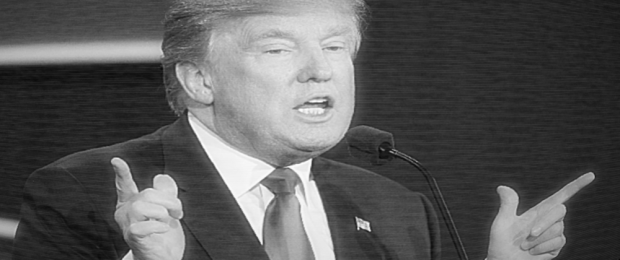
This is important:
In one important area, Pence has the advantage of being perceived as a mainstream pol. Politico published a piece yesterday that characterized tonight’s vice presidential debate as “Battle of the Normals,” and a “sane moment” in a campaign cycle that’s often seemed insane.
On a certain level, I can appreciate where analysis like this is coming from. As a matter of tone and temperament, Mike Pence is hardly scary: the governor is a mild-mannered, soft-spoken Midwesterner. Unlike the man at the top of the GOP ticket, no one would ever expect Pence to start tweeting at 3 a.m. about his disgust for a beauty-pageant contestant and encourage Americans to seek out a “sex tape.”
But to shift one’s focus from tone to policy is to see one of the most extremist politicians to seek national office in over a generation.
Steve Benen is not wrong. This has been a factor worth considering in recent years, and even more so this cycle. What counts as centrist or mainstream is, in American politics, a roving range. The msnbc blogger and producer continues:
About four years ago, Nate Silver published an interesting analysis of Paul Ryan, who’d just been named to Mitt Romney’s ticket. Nate wrote at the time, “Various statistical measures of Mr. Ryan peg him as being quite conservative. Based on his Congressional voting record, for instance, the statistical system DW-Nominate evaluates him as being roughly as conservative as Representative Michele Bachmann of Minnesota. By this measure, in fact, which rates members of the House and Senate throughout different time periods on a common ideology scale, Mr. Ryan is the most conservative Republican member of Congress to be picked for the vice-presidential slot since at least 1900.”
Nate added a chart, highlighting the fact that Ryan’s record put him slightly to the right of Dick Cheney, who was slightly to the right of Dan Quayle.
There are curious circumstances, now and again, in which the GOP hardliners leave me standing shoulder to shoulder with Republicans I generally wouldn’t get along with. George W. Bush on China, and suddenly I’m commiserating with Pat Buchanan? What was it, Jade Helm? How do Rick Perry and I land on the same side? I can tell you, though, that when Lindsey Graham is bagging points off John Kasich being described as a “moderate”, well, at least we have that much in common.
It happens.
We revisit the question for Mike Pence. Benen notes the Indiana governor also has a record in Congress:
In the 107th Congress (Pence’s first, covering 2001 and 2002), for example, out of 435 members of the U.S. House, Pence ranked #428―meaning that 427 members were to his left, putting the Hoosier on the far-right-wing fringe. The results were roughly the same in the 108th Congress and the 109th.
By the 110th Congress, Pence was at #432, putting him to the right of nearly everyone in the chamber. The results were roughly the same in the 111th Congress and the 112th.
Let’s put this another way: during his congressional career, Pence wasn’t just more conservative than Paul Ryan. His voting record also put him to the right of Michele Bachmann, Todd Akin, Steve King, and even Louie Gohmert. That’s not an exaggeration. Bachmann, Akin, King, and Gohmert all had voting records less extreme than Mike Pence.
The problem is the gap between perceptions of Mike Pence and his actual record. To use Politico’s phrasing, the Hoosier is seen as “normal” and “conventional.” But on a substantive level, we’re talking about a politician whose claim to fame is an anti-LGBT law that did real harm to his state. Pence is a climate denier. He rejects the idea that cigarettes are deadly. He doesn’t believe in evolutionary biology, but he does support “conversion therapy.”
There was an embarrassing episode having to do with alleged Iraqi WMDs; something about privatizing Social Security not being conservative enough; something about government shutdowns; oh, right, and some manner of conspiracy theory about Disney film and women in the military.
Unfortunately, that last isn’t a joke.
This is the problem: If Gov. Mike Pence is “normal”, then we might pause to consider how we define normalcy.
____________________
Image note: Indiana Gov. Mike Pence appears on FOX News Sunday with Chris Wallace, 22 February 2015. Guest host John Roberts interviewed Mr. Pence regarding various issues, including his status as a 2016 GOP dark horse and the Hoosier State’s infamous “religious freedom” bill intended to empower discrimination. (Image credit: FOX News)
Benen, Steve. “Mike Pence saw secret propaganda in Disney film”. 18 July 2016.
—————. “Pence becomes the most far-right running mate in modern history”. msnbc. 15 July 2016.
—————. “To see Mike Pence as ‘normal’ is to grade on a generous curve”. msnbc. 4 October 2016.
Kaczynski, Andrew. “Mike Pence Argued In Op-Ed That Disney’s ‘Mulan’ Was Liberal Propaganda”. BuzzFeed. 17 July 2016.
Salter, Lamar. “‘My party has gone bats— crazy’: Lindsey Graham jokes about killing Ted Cruz and bashes the remaining GOP candidates”. Business Insider. 26 February 2016.
Silver, Nate. “A Risky Rationale Behind Romney’s Choice of Ryan”. FiveThirtyEight. 11 August 2012.








